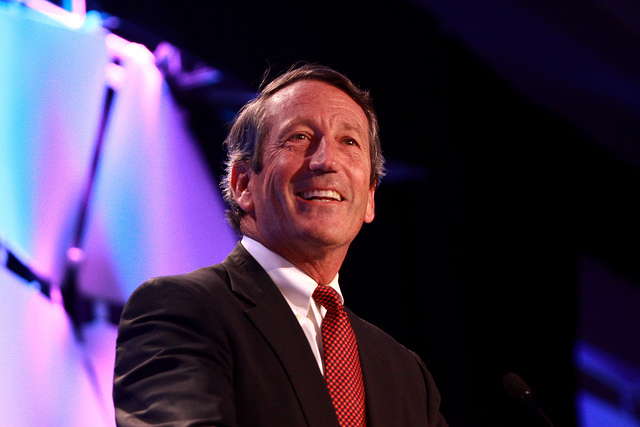
Representative Mark Sanford (R-S.C.) this year has been working to make “flight-sharing” in the U.S. a reality. The concept of flight-sharing would allow pilots to share their travel plans so that passengers looking to fly to the same destination would be able to split the costs of the flight. This free-market, pro-consumer concept would add a new layer of travel accessibility to the already booming sharing-economy marketplace, but is currently stalled by and overreaching FAA.
The concept of flight-sharing is relatively new, and as mentioned would allow private (as opposed to commercial) pilots to share travel plans online so that passengers traveling to the same destination would be allowed to split the costs of the flight with the pilot. Airline ridesharing startups such as Flytenow have developed technology to allow flight-sharing on an online platform that would pair private pilots with other individuals.
The potential benefits of flight-sharing to consumers and pilots are huge. There are roughly 28,000 commercial flights daily in the U.S., compared to over 50,000 private flights daily. Commercial airlines currently access 560 U.S. airports while private pilots reach over 19,000 airports throughout the country.
However, under existing federal regulations, private pilots are prohibited from using the internet to post flight routes and as a result effectively prohibited from splitting the cost in sharing a ride. As characteristic of a slow to adapt federal bureaucracy, pilots are allowed to post shared flights on a “3-by-5 card” pinned to the bulletin board of the pilots lounge, but are barred from posting the same information on a virtual bulletin board.
Thus once again you have federal bureaucrats preemptively grounding a potentially market changing and consumer driven innovation before it has had the chance to take off. Thankfully Rep. Sanford understands the potential benefits that flight-sharing could yield for consumers and the economy.
In response, Rep. Sanford authored an amendment to correct this issue, the language of which was incorporated into the AIRR Act during committee consideration. The language of Sandford’s provision would require the FAA to issue or revise regulations to ensure that holders’ of a private pilot’s license can communicate with the public through any medium, such as the internet. As such, flight-sharing startups like Flytenow would be allowed to operate their internet-based platform pursuant to FAA rules.
In a recent press release, Rep. Sanford touted the benefits of flight-sharing, stating that, “if private pilots can connect with passengers, the end result is more flights available to more airports – and more choices for me and you as consumers.”
Lawmakers in Congress are currently facing a July 15 deadline to reauthorize funding for the FAA, with the House and Senate both offering competing plans. Regardless of what route lawmakers take, the legislative vehicle should include the flight-sharing provisions Rep. Sanford has put forth.
As we’ve seen play out with the hard-fought success of other sharing economy technologies, government is often slow to adapt to the fast paced innovation of the free-market, thus depriving Americans of life changing products and services. Rep. Sanford’s efforts to support flight-sharing would resolve such regulatory quagmires by allowing a new and market changing service to benefit consumers and the economy.
Photo credit: Gage Skidmore

